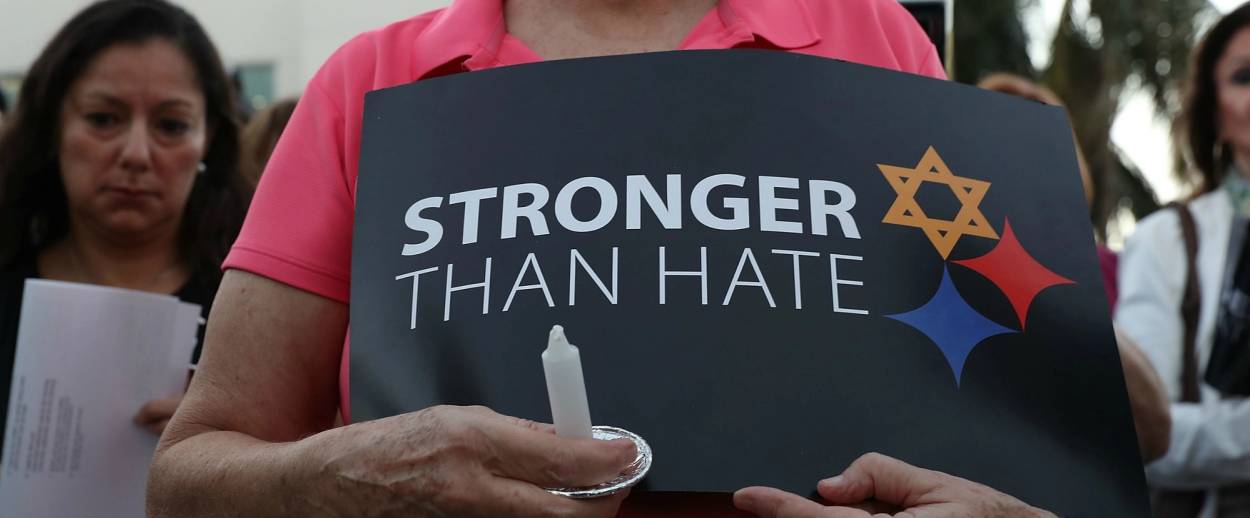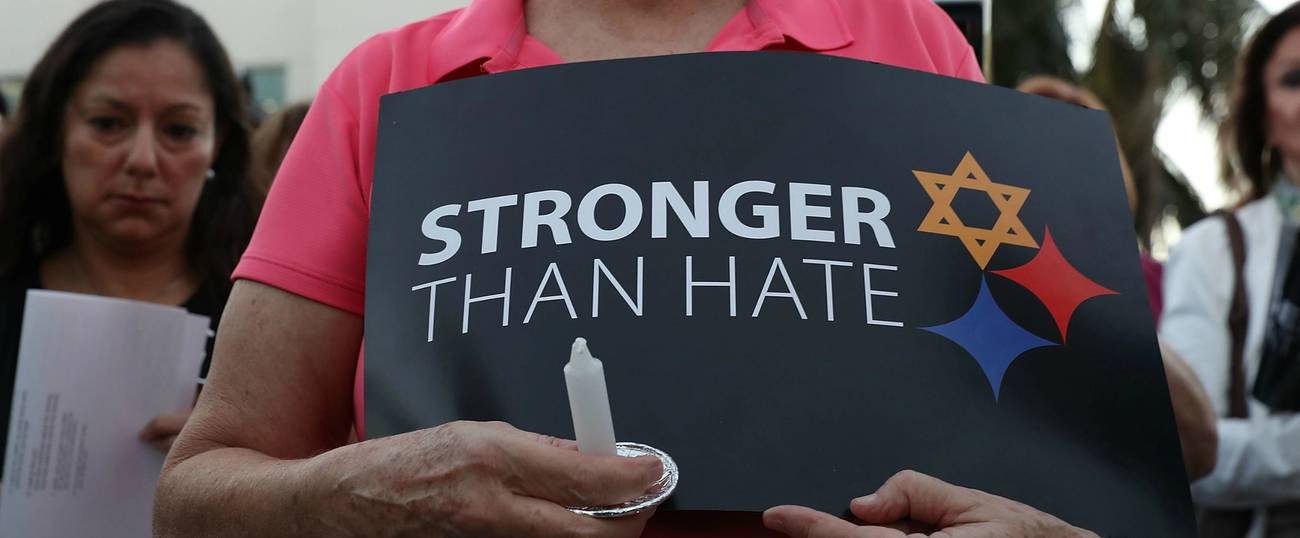The Squirrel Hill Diaspora
Jewish Pittsburghers living around the world struggle to process the synagogue attack while far from the city they love




Josh Kalla, a graduate student living in Berkeley, California, and a Pittsburgh native, got a call early Saturday morning from his father, and then his sister, telling him there had been a shooting in their family’s synagogue. Later that night, he stopped by a vigil being held near his West Coast apartment. Though he was moved by the support and the solidarity of the Berkeley community, he didn’t stay long.
“It was too raw. I was both an insider and an outsider,” he explained. “For them, it was abstract.” The nation was mourning a national tragedy, but for Kalla, it was personal; he wasn’t yet thinking about what this all meant for the country. He was waiting to learn the names of the victims, to know who among their family friends and fellow congregants he would be mourning.
Devorah Zlochower, who grew up in Pittsburgh and now serves as dean of Yeshivat Maharat in New York, felt similarly disconnected from the immediate reactions of those not from Pittsburgh, acknowledging she simply hasn’t processed the information yet. “It’s hard to relate to this worldwide attention and relate to this as a big horrible attack in U.S. history, when it’s really on Shady and Wilkins where this horrible thing happened,” she said, referring to the synagogue intersection she knows well. Instead, she’s been speaking to her parents multiple times a day, asking for updates on the community and any local information.
For Pittsburgh Jews living around the world, processing this attack while far from the city they know and love has been hard. The Jewish community of Pittsburgh is unusually close-knit, concentrated in the Squirrel Hill neighborhood, and many Jewish families go back several generations, often living within walking distance of their extended relatives and childhood friends. As news about the attack spread across the country, Facebook chats and group texts sprung up among those in the Squirrel Hill diaspora, sometimes among people who hadn’t spoken in years but felt connected in their shock and sadness.
“I’ve been livestreaming whatever I can for my friends who can’t be here,” said Jamie Lebovitz, who lives in Squirrel Hill, where she and her husband were born and raised. “I needed to bring people with me, for this,” she said, describing how she recorded the local Sunday evening vigil and other memorial gatherings for her Facebook page in order to share these communal experiences with Pittsburgh friends who had moved away.
Many raised in the community retain a deep sense of solidarity and pride in their hometown, and wanted to connect with others who could share in the particularity of their pain. Some, like Hannah Malvin, who now lives in Washington, D.C., absorbed the news as not just an attack against the Jewish people in general, but against the community that has long been her model of Jewish kindness and justice. “I grew up in the loving embrace of this community, and this just felt like such an attack on all the values I had learned there,” she said, adding that growing up in Pittsburgh is like growing up with a whole city of grandparents, aunts, uncles, and cousins who looked out for her and believed in her. Malvin heard the news while in Utah, attending a conference with her father, and was grateful to not be alone as they processed the events and waited for more information. “It was so important having my dad there. I couldn’t imagine being alone in that experience,” she said. Like many others, she immediately connected with her former classmates and hometown friends on Facebook and social media and decided to head up to Pittsburgh to be with the community in person.
Others, especially in the Orthodox Jewish community, couldn’t reach their families and friends until after sunset when Shabbat restrictions on using technology would lift. Menachem Lazar, who now lives in Israel, described finding out about the attack once Shabbat had ended in Israel, but hours before it would end in Pittsburgh. “I was watching the news on TV and thinking: my friends who are a few blocks away, still in synagogue, might not know what’s going on.”
As the nation has turned its attention to Squirrel Hill and its Jewish congregations, many feel pride in having the country discover what they have often described as a hidden jewel of Jewish life in America. But the tragedy remains deeply personal.
“I have always tried to proselytize what a great place this is,” said Eric Stern, who grew up a few blocks from the synagogue that was attacked and now lives in Cleveland. But after spending Saturday on the phone with his family and texting his Pittsburgh friends, he decided to drive up for the day on Sunday to be with his parents. “I’m proud to be from Pittsburgh and to be a Jew from Pittsburgh,” he said. In that moment he wanted to be surrounded with others who felt the same way.
Shira Telushkin is a writer living in Brooklyn, where she focuses on religion, beauty, and culture. She is currently writing a book on monastic intrigue in modern America.